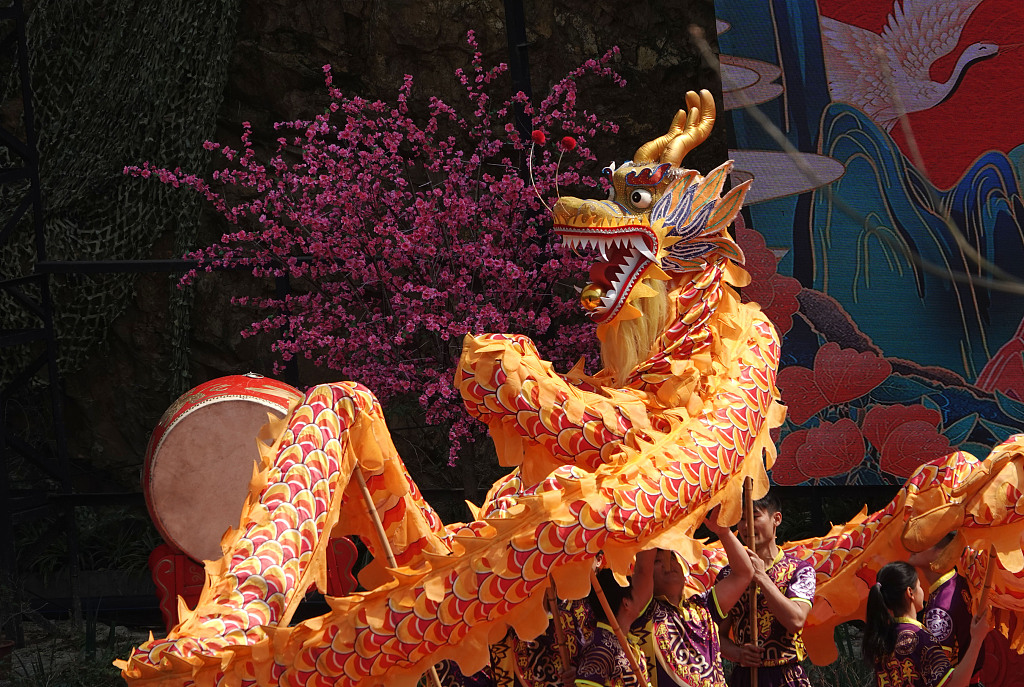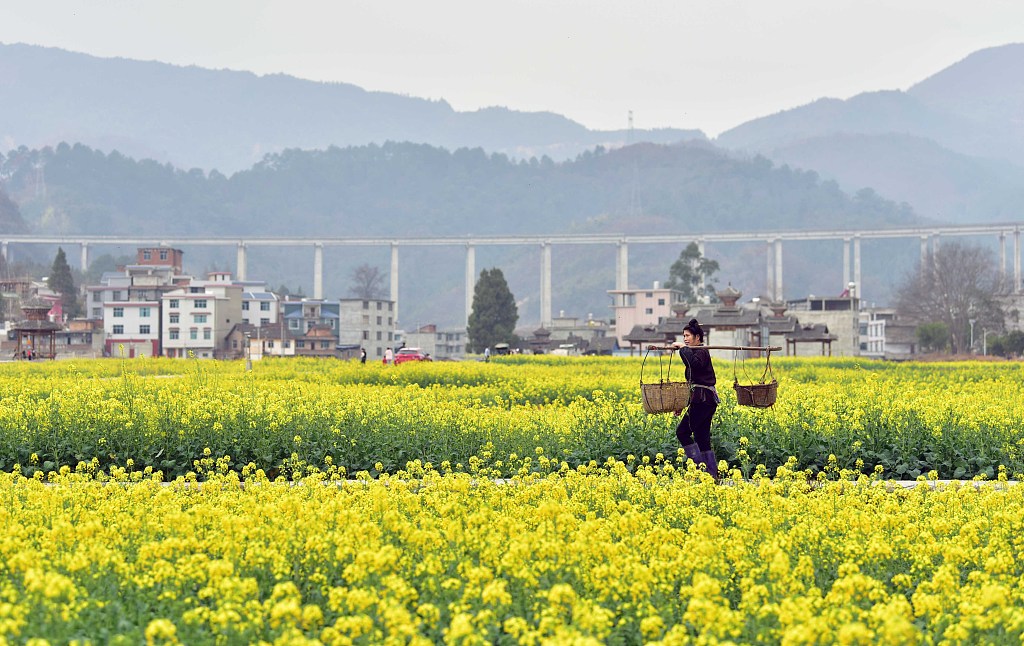Today marks the traditional Dragon Head-raising Day, or Longtaitou Festival in Chinese, which comes on the second day of the second lunar month each year. This year, it falls on February 21.
Many parts of China celebrate the day in various ways, such as performing a dragon dance and sailing a dragon boat. It is believed that Dragon Head-raising Day originated from the celestial worship of nature, and is related to people's knowledge of the movement of the stars and farming culture in ancient China.

Dragon dancing to celebrate Chinese Dragon Head-raising Day in Naning City, south China's Guangxi Zhuang Autonomous Region, February 20, 2023. /CFP
Dragon dancing to celebrate Chinese Dragon Head-raising Day in Naning City, south China's Guangxi Zhuang Autonomous Region, February 20, 2023. /CFP
In ancient agrarian societies, farming was highly reliant on the weather. Proper rainfall and plenty of sunlight were necessary for a good harvest at the end of the year. Dragons are auspicious omens in Chinese folk legends and they were believed to dominate wind and rain. In ancient times, people pray that dragons would rise to produce plentiful rain for mankind and facilitate spring plowing on this day.
In parts of southern China, the rain is more abundant, so people depend more on the land. They worship the God of the Land in the hope of a good harvest in autumn.

A woman is walking in the field in Congjiang County, southwest China's Guizhou Province, February 19, 2023. /CFP
A woman is walking in the field in Congjiang County, southwest China's Guizhou Province, February 19, 2023. /CFP
There are several explanations behind the name, "Dragon Head-raising." One of the most common ones is that the raising of the dragon's head symbolizes the waking of all life from hibernation. From this day on, insects and animals appear more often, ready to begin their life for another year.
(Cover image via CFP)
(If you want to contribute and have specific expertise, please contact us at nature@cgtn.com.)